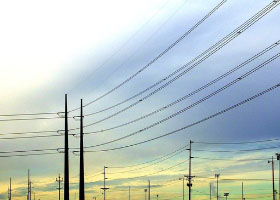


Speaker Marie-José Nadeau, chair of the World Energy Council, stated that the energy industry is undergoing a profound transformation. While recognizing the impact of low oil prices and high global stock levels on investments, she insisted that “the need to decarbonize our economies combined with the push from the rapid digitalization of the energy industry is irreversibly changing our sector.”
She noted this brings uncertainty and risk, but also potential opportunities in the transition to a more sustainable energy system.
Nadeau explained how for investors looking at the energy sector today, there are three main game changers: decarbonization, digitalization, and decentralization. “In the electricity sector, the last decade has witnessed significant advances in renewable technologies,” she said. “The decline in the cost of renewables combined with an impressive level of innovation in the digitalization of the electric grid is challenging the centralized utility model.”
She also said that decarbonization is impacting the energy sector and increasingly natural gas is being substituted for coal in the development of liquefied natural gas (LNG) projects. In many countries, a combination of soaring levels of renewable energy and the expected closure of coal and nuclear assets is creating an adverse impact on revenues and investment returns.
“Around the globe, financial institutions, banks, pension funds, regulators and insurers are examining the impact of policies to curb greenhouse gas emissions on the value of fossil fuel assets,” Nadeau said.
She said there are concerns about a sudden collapse in the value of fossil fuel assets and a sharp drop in the share price of oil, gas and coal companies that could result from a poorly managed switch to less C02 intensive energy sources.
“We can anticipate continued heavy investments in low-carbon energy sources and in the development of new technologies,” Nadeau said.
Innovation in the digitalization of the electric grid is challenging the centralized utility model and Nadeau explained that this decentralization is empowering customers through choices that previously did not exist. Individuals now have an increasing ability to manage their electricity consumption and produce their own electricity.
“The energy industry is entering unchartered territory where the rules of the game are changing and technology is disrupting traditional business models,” she explained.
Nadeau concluded by saying, despite these changes, one certainty has emerged: the demand for energy will increase. “With this complex and fast-changing environment there is a growing need for energy, and with it, for massive investments.”
